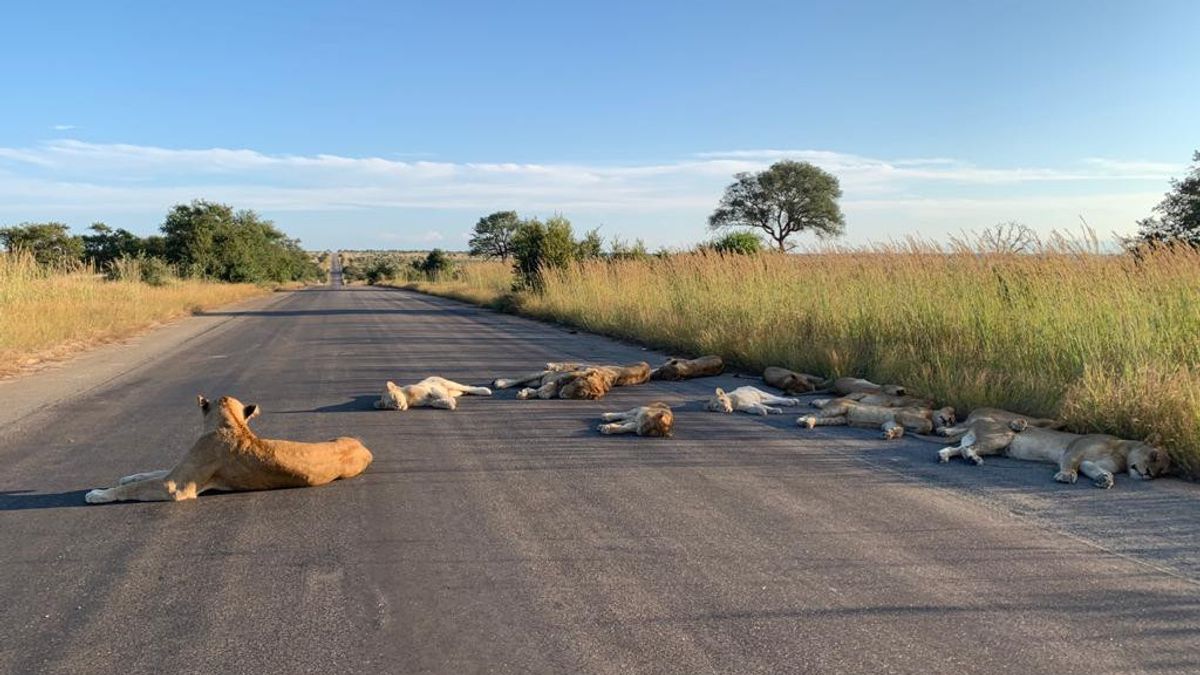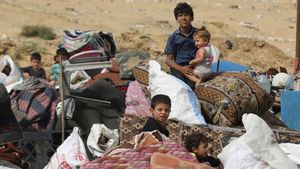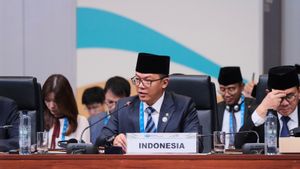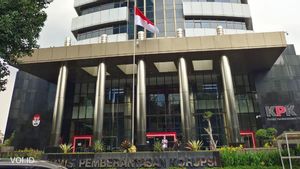JAKARTA - Several lions can be seen lying on the road that is often traversed by people in South Africa. It was as if they were on vacation in a country that was undergoing a lockdown since March 25. This can be seen from several photos shared by Kruger National Park in South Africa.
As is known, Kruger National Park is one of the largest reserve areas in Africa. After the lockdown, they used to share pictures of wild animals roaming around. Like elephants, deer, and several herds of lions who are seen enjoying the warm asphalt of Kruger roads.
Kruger visitors that tourists do not normally see. #SALockdown This lion pride are usually resident on Kempiana Contractual Park, an area Kruger tourists do not see. This afternoon they were lying on the tar road just outside of Orpen Rest Camp. 📸Section Ranger Richard Sowry pic.twitter.com/jFUBAWvmsA
- Kruger National Park (@SANParksKNP) April 15, 2020
"Kruger visitors who rarely see people," wrote the official Twitter account Kruger National Park @SANParksKNP. "The lions usually live in the Kempiana Contractual Park, an area where the Kruger tourists don't go. This afternoon they lie on the outer road near the Orpen Rest Tent."
There is nothing anomalous about the overall behavior of the animals in Kruger except for the lions, said National Park spokesman Ike Phaahla. The lions, Phaahla added, seemed to be taking advantage of the moment when there weren't many people passing by.
"They are nocturnal animals, and sleeping during the day is common. What is unusual is the use of the road, because if the traffic is busy they will not use it," explained Phaahla to CBS News.
Another unusual sight in Kruger is, wild dogs and lions were seen walking around the golf course.
However, amidst the lack of human intervention to care for the animals, there are concerns about poaching. This problem threatens the existence of endangered species.
A South African rhino rescue organization, for example, has reported at least one poaching incident occurring each day since the lockdown. In neighboring Botswana, which is one of the safest places for wildlife, at least six rhinos have been poached since the country closed its borders. Fortunately, a similar incident has not been found in Kruger National Park.
As is known, the streets of Kruger National Park are quiet after there have been calls to stay at home nationwide. Travel bans and other policies that seek to alleviate COVID-19 have cost the tourism industry of the Black Continent worth US $ 39 billion. This is despite the fact that this business is one of the largest wildlife conservation funding posts on the continent.
The English, Chinese, Japanese, Arabic, and French versions are automatically generated by the AI. So there may still be inaccuracies in translating, please always see Indonesian as our main language. (system supported by DigitalSiber.id)













